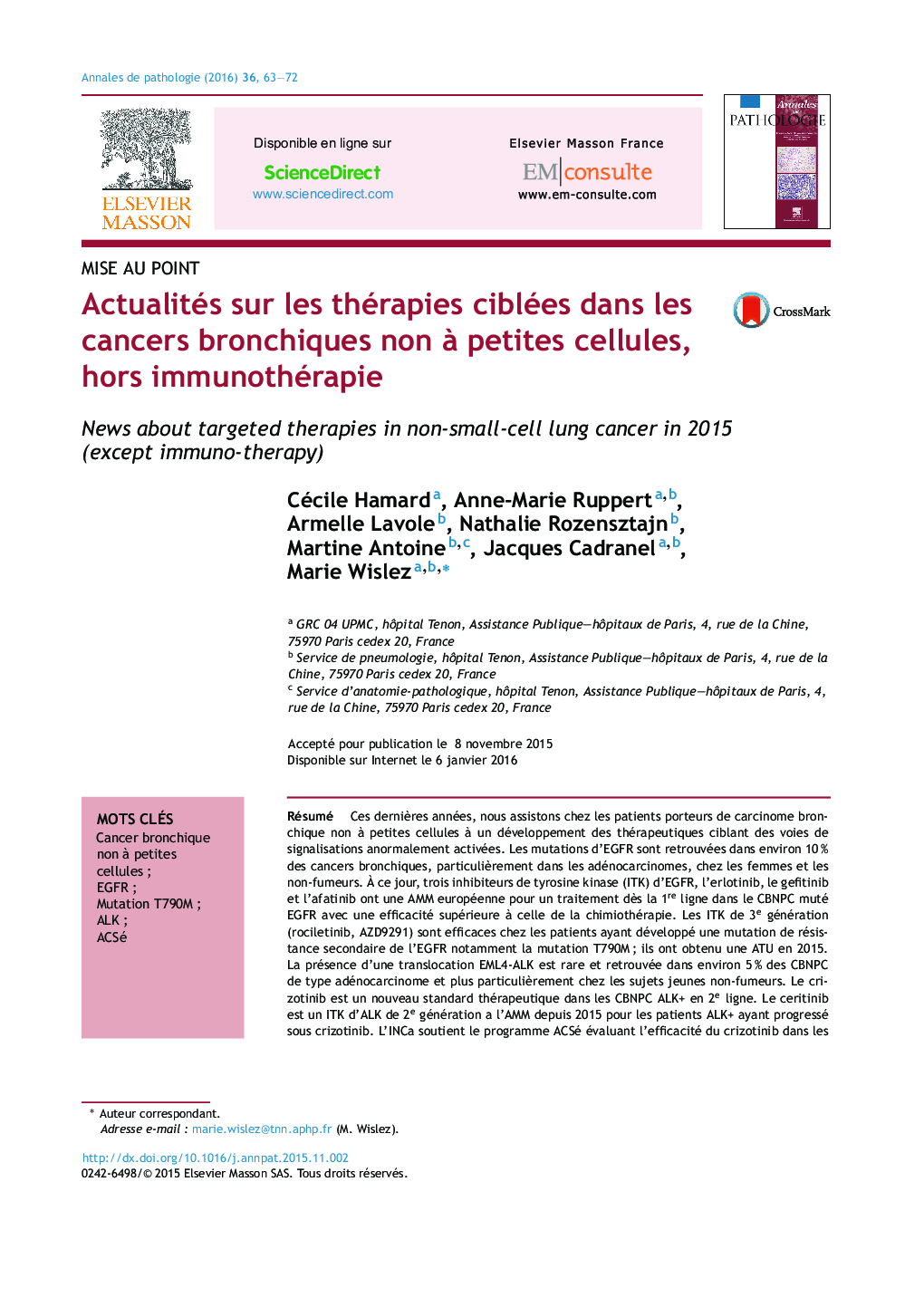| Article ID | Journal | Published Year | Pages | File Type |
|---|---|---|---|---|
| 4127939 | Annales de Pathologie | 2016 | 10 Pages |
Abstract
Recently, developments of therapies that target abnormally activated signaling pathways are increasing for patients with non-small cell lung cancer. EGFR mutations are found in about 10% of lung cancers, especially in adenocarcinoma, women and non-smokers. Three EGFR inhibitors (erlotinib, gefitinib and afatinib) received a European marketing authorization for up to first line treatment of EGFR mutated NSCLC. Effectiveness of EGFR inhibitors is higher than conventional chemotherapy. Third generation EGFR inhibitors (rociletinib, AZD9291) are effective for patients who develop a resistance mutation such as T790M resistance mutation; they obtained temporary authorization for use in France in 2015. The EML4-ALK translocation is found in about 5% of NSCLC and more particularly in adenocarcinoma of young non-smoking patients. Crizotinib is a new therapeutic standard in ALK translocated NSCLC in second line. Ceritinib is a 2nd generation ALK inhibitor which received a European marketing authorization for up to treatment of ALK translocated NSCLC after progression with crizotinib. INCA supports ACSé program evaluating the efficacy of crizotinib in NSCLC amplified for MET or translocated for ROS1 and ACSé program evaluating the efficacy of vemurafenib in tumors non melanoma mutated V600E BRAF. The role of other biomarkers such as KRAS, BRAF, HER2 and PI3KCA mutations remains to be defined in NSCLC.
Related Topics
Health Sciences
Medicine and Dentistry
Pathology and Medical Technology
Authors
Cécile Hamard, Anne-Marie Ruppert, Armelle Lavole, Nathalie Rozensztajn, Martine Antoine, Jacques Cadranel, Marie Wislez,
